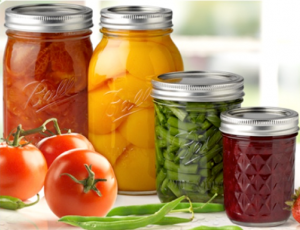Do you have a secret family recipe or do your friends tell you they would buy a certain dish you make? If you answered yes to one these questions, and you have the entrepreneurial spirit, the Florida Cottage Food law allows you to make and sell small batches of certain food items made in your home kitchen! The term “cottage” originally referred to the family cottage (i.e., home) familiar to most rural communities.
The “Cottage Food Law” is the terminology used to describe the legal tools employed in Florida to establish a legal arrangement for low risk food production prepared in a home residence. Cottage food operations require no license or permit from the Florida Department of Agriculture and Consumer Services (FDACS) and are not inspected by any state government entity. Food products covered in this law are considered non-potentially hazardous foods, which mean that they do not require time and/or temperature control for safety.
The Cottage Food Law provides specific language as to where and how the products can be sold, caps annual gross sales and specifies specific language for the product label. For example: cottage foods may be sold directly to the consumer either from your home or at a farmer’s market, farm stand, roadside stand or similar venues. The key is that these products must be sold directly to the end-consumer; they cannot be sold to a retailer, wholesaler, restaurant, or food distributors. Additionally, these products cannot be sold over the internet or by mail order. Gross sales for a cottage food operation must not exceed $15,000 annually and all cottage food products offered for sale must be pre-packaged with a label affixed. A bill  recently passed in the Florida legislature that would raise this annual cap to $50,000. Stay tuned for more info as this bill is implemented!
recently passed in the Florida legislature that would raise this annual cap to $50,000. Stay tuned for more info as this bill is implemented!
This law eliminates the regulatory hoops associated with most start-up food businesses and serves as the first step an individual could use to make their own cottage food products. It is important to note that while cottage food operations are exempt from licensing and inspection, they are not exempt from providing safe food.
 0
0
